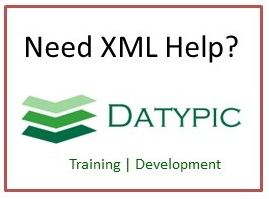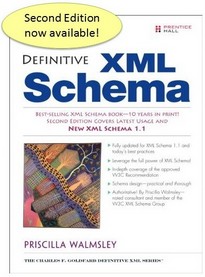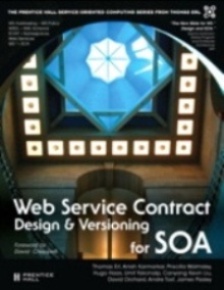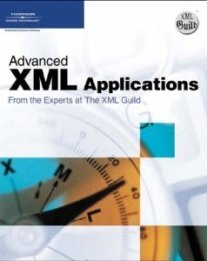SequenceScheduleHeaderBaseType
Complex type information
Namespace: http://www.openapplications.org/oagis/10
Schema document: Common.xsd
Properties: ID: oagis-id-9a404628760a45fd878da90dcd8ea91b
Content
- Sequence [1..1]
- ID [0..1] Is the Identifiers of the given instance of an entity within the scope of the integration. The schemeAgencyID attribute identifies the party that provided or knows this party by the given identifier.
- RevisionID [0..1] Is the revision of the semantically named document. The combination of the ID and its revision uniquely identifies the associated entity.
- VariationID [0..1]
- DocumentIDSet [0..*]
- LastModificationDateTime [0..1] The datetime on which the object was last modified
- DocumentDateTime [0..1] The date that document was created within the system of record.
- Description [0..*]
- Note [0..*]
- DocumentReference [0..*]
- Attachment [0..*] The Attachment represents binary data files that may be included within a BOD. These files replace the paper specifications and drawings attached to a BOD definition to clearly communicate design requirements. This Data Type is optional. Attachment usage is further defined by its position.
- Status [0..*] Indicates the status of the associated object by providing the Status Code along with a description and when the status is effective.
- RespondingScheduleReference [0..1] Identifies the previously received plan schedule that this new schedule is responding to as a reference. The typical scenario is a supplier uses a Sync PlanningSchedule or Sync ShipmentSchedule to respond to a customer demand schedule, and this will identify the customer demand schedule that this supplier previously received. The date and time is also used in identifying the previously received plan schedule that the new plan schedule is responding to. Note that the combination of document id, document date, and revision number can uniquely identify a plan schedule.DateType indicates whether the dates specified on the schedule are delivery based or shipment based. Dates specified on the schedule include FromDateTime and ToDateTime at Header and Line levels. ScheduleType indicates whether the PlanningSchedule is a demand schedule from a customer or a supply schedule from a supplier. For the supplier schedule to respond to the original demand schedule, the RespondingScheduleReference is used to identify the customer's original demand schedule that it is responding to.
- EffectiveTimePeriod [0..1] A time period in which an associated object is effective.
- DateCode [0..1] Indicates whether the dates specified on the schedule are delivery based or shipment based. Valid values for this field include: - Ship - Deliver
- ScheduleTypeCode [0..1] ScheduleType is a code or identifier that describes the specific schedule and can be used in a variety of contexts. When used in the context of employee, ScheduleType refers to the specific schedule for the employee or worker. When used in the context of a Schedule, ScheduleType indicates whether the Schedule is a demand schedule from a customer or a supply schedule from a supplier. Valid values for this context are: “Demand”, “Supplier”
- Party [0..*] A generic Party for non-validated or application-validated parties. A work-around for situations where Schema-validation of Parties is not feasible or not desired.
- ShipToParty [0..*] Identifies the ShipToParty for the document or the line. In a lot of cases, this is the same as the CustomerParty. In multi-organization purchasing, the CustomerParty may be different from the BuyerParty
- SoldToParty [0..*] Is to be used for third party buying to indicate the buying organization. All purchasing scenario will have a CustomerParty is used to indicated the End Customer of the transaction.
- BillToParty [0..*] Identifies the party that the bill or invoice is to be sent. In most cases this is the same as the CustomerParty however there are many cases where the CustomerParty and the BillToParty will be different.
- ShipFromParty [0..*] Identifies the party that the goods or services are being shipped or sent from.
- SupplierParty [0..*] Identifies the supplier organization/entity of the items or inventory for the associated transaction. In most cases there is one SupplierParty per transaction. i.e. one SupplierParty for a given PurchaseOrder. However in the cases where an transaction Broker is involved there are cases where a single transaction may have different SupplierParties at the line level or in the case of a Catalog for the Catalog.
from type DocumentIdentificationBaseTypefrom type HeaderBaseTypefrom group FreeFormTextGroupfrom group ReferencesGroupfrom type StatusHeaderBaseTypefrom type ScheduleHeaderBaseType
Attributes
None
Used by
- Element SequenceScheduleHeader via derived type SequenceScheduleHeaderType
Type inheritance chain
- DocumentIdentificationBaseType
- HeaderBaseType
- StatusHeaderBaseType
- ScheduleHeaderBaseType
- SequenceScheduleHeaderBaseType
- extended by SequenceScheduleHeaderType
- SequenceScheduleHeaderBaseType
- ScheduleHeaderBaseType
- StatusHeaderBaseType
- HeaderBaseType



